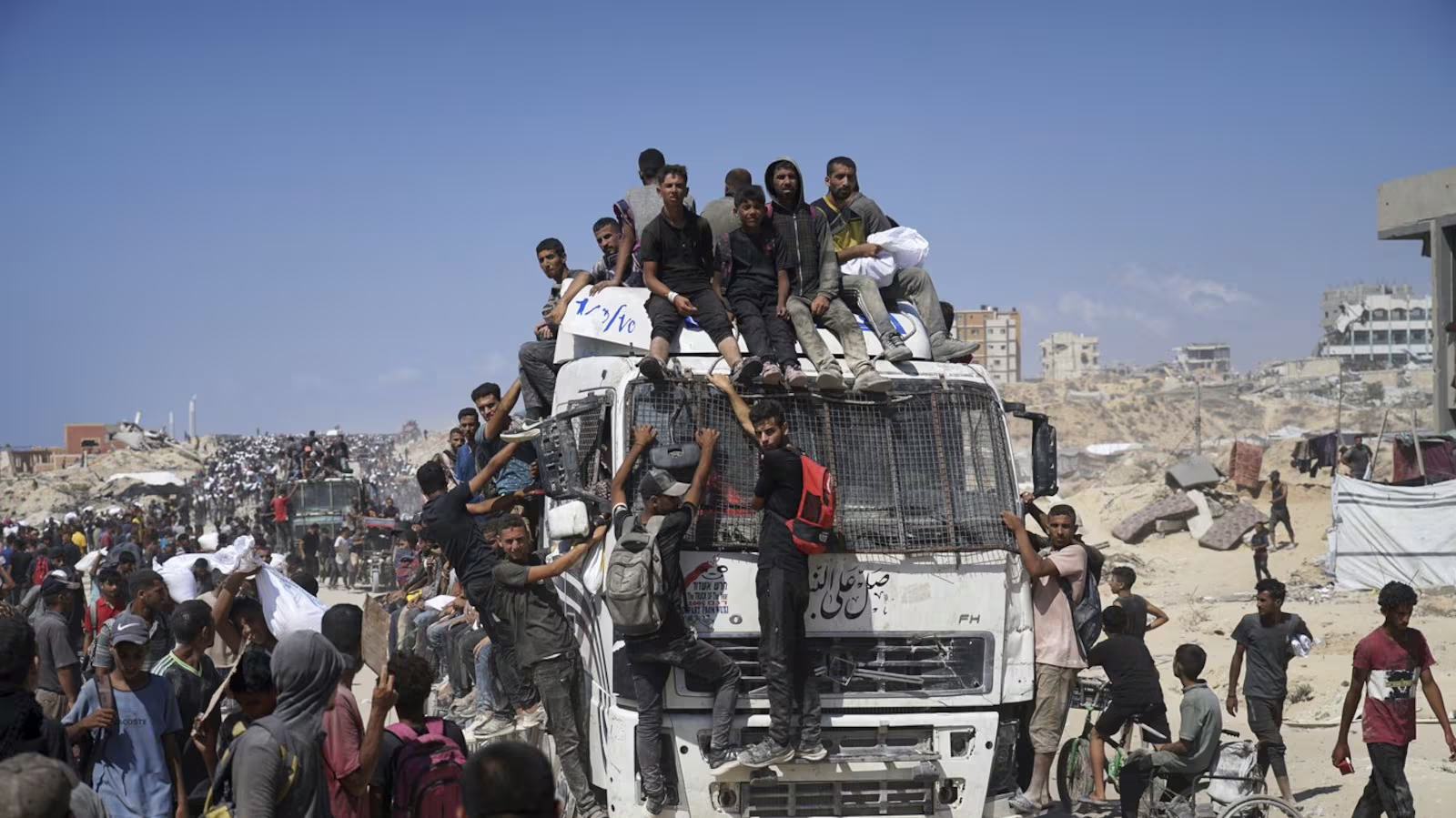For the first time since March, a Canadian charity is on the verge of successfully delivering desperately needed food to Palestinians in Gaza, marking a potential breakthrough in months-long aid blockages. Human Concern International (HCI) announced on Friday that two trucks loaded with flour are positioned to enter the Gaza Strip—but have been temporarily held back due to safety concerns amid rampant looting.
“What’s happening in Gaza right now is beyond catastrophe,” said HCI executive director Mahmuda Khan, describing a situation where hunger and desperation have reached critical levels. The charity had been a regular contributor of humanitarian aid until Israel blocked external deliveries in March, opting instead to distribute aid through its own tightly controlled channels. Since then, hundreds of Palestinians have been shot while trying to access food at Israeli-operated distribution points.
Although Israel has recently eased some restrictions, allowing Jordanian soldiers to begin airdropping Canadian-funded aid, on-the-ground deliveries remain fraught with danger. HCI was granted approval to cross into Gaza on Thursday with two trucks carrying 1,300 25-kg bags of flour each, but the team postponed the mission out of fear for the safety of both staff and civilians.
“We’re seeing trucks being swarmed by large, desperate crowds,” said Khan. “Until we can find a safer route, we won’t risk it.”
In total, the charity has three trucks of flour and seven trucks carrying over 2,000 food boxes ready to enter as soon as conditions allow. However, Israel continues to restrict what can be delivered—only allowing foods that require cooking, like lentils and rice, while barring items such as baby formula and canned tuna. Khan accused Israeli authorities of “deliberately limiting” food types to keep Gaza’s population hovering at a malnutrition threshold. Israel denies this, claiming it is meeting humanitarian obligations under international law.
Israel has defended its March blockade, alleging that Hamas had been selling vital supplies to fund its fighters—an accusation the UN says is not supported by large-scale evidence. While Israel claims to have facilitated 600 truck deliveries in the past five days, the UN maintains that this number is what’s needed per day to meet basic humanitarian needs in Gaza. Prior to last week’s loosening of restrictions, daily aid volumes had dropped to as low as 70 trucks.
Access continues to be complicated by Israeli military control, dangerous routes, and lawlessness inside Gaza. UN convoys are frequently overwhelmed by crowds or blocked by gangs. One recently released video shows warning shots being fired as people swarm a UN truck convoy.
The situation is compounded by soaring food prices—$21.60 per kg for onions and nearly $19 for tomatoes—while local clinics operated by HCI are overwhelmed by patients, many of them children, suffering from waterborne diseases and lacking access to medicine or power.
“What Gaza needs is not just emergency rations,” said Khan. “They need clean water, consistent nutrition, medicine, fuel—a complete solution to survive this man-made crisis.”
While Canada, the U.S., and international organizations continue to support humanitarian efforts, the path forward remains obstructed by logistical chaos, limited access, and differing political narratives. HCI is urging Ottawa to intensify pressure on Israel to allow more comprehensive, nutrition-focused aid into Gaza.

